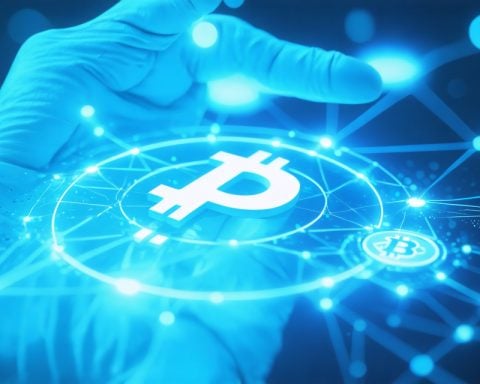China is moving to tighten its grip on battery manufacturing technology exports in response to tariffs placed by Western powers. The country’s latest update emerges after the European Union and the United States initiated measures against Chinese electric vehicles, prompting a significant shift.
Beijing’s Ministry of Commerce has announced that Chinese companies will now require government authorization to export technologies critical for producing lithium-phosphate-iron (LFP) cathode materials. These materials are essential for creating cost-effective lithium-ion batteries widely used in electric vehicles.
In addition to the new export permits for LFP technologies, local firms may face stricter regulations on the sale of technology used to extract lithium from hard rock spodumene ore. This shift aims to safeguard key resources from potential misuse and ensure that China retains a competitive edge in the burgeoning electric vehicle market.
The proposed regulations reflect a strategic response from China, as the measures will remain open to public consultation until February 1. This move signals Beijing’s intent to protect its interests amid growing international tensions surrounding trade and technology.
As the situation evolves, the impact of these changes on global supply chains and the electric vehicle industry will be closely monitored, with potential ripple effects felt far beyond China’s borders.
China’s New Export Regulations: What You Need to Know About Lithium Battery Technology
Introduction
In a significant development in the global electric vehicle (EV) market, China has announced new regulations regarding the export of key battery manufacturing technologies. This strategic move comes in the wake of tariffs imposed by Western countries, particularly the European Union (EU) and the United States, in an effort to protect domestic industries.
Overview of New Regulations
Beijing’s Ministry of Commerce has instituted a requirement for government authorization for Chinese companies wishing to export lithium-phosphate-iron (LFP) cathode materials. These materials are crucial for producing affordable lithium-ion batteries, which are widely utilized in electric vehicles. The regulations also extend to stricter controls over the technology used for extracting lithium from hard rock spodumene ore, reinforcing China’s position in the EV market.
Why This Matters
1. Protection of Resources: By regulating the export of critical technologies, China aims to safeguard its lithium resources and prevent potential misuse by foreign competitors.
2. Competitive Edge: With this move, China looks to maintain its leadership in battery manufacturing, especially as the global demand for electric vehicles continues to surge.
3. Global Supply Chain Impact: The restrictions on technology exports are likely to have significant repercussions on global supply chains, potentially leading to increased costs and delays in battery production.
Features of the New Regulations
– Approval Process: Companies must now secure government approval prior to exporting LFP technology, a move aimed at tighter control and oversight.
– Public Consultation Period: The proposal is open for public feedback until February 1, allowing stakeholders to provide input on the new regulations.
Pros and Cons
Pros:
– Strengthens Domestic Industry: Protecting local resources and technologies can enhance China’s EV manufacturing capabilities.
– Encourages Innovation: Focused regulations may lead to advancements in battery technology within China.
Cons:
– Rising Costs for Foreign Companies: Increased tariffs and regulations could lead to higher production costs for international companies reliant on Chinese technology.
– Global Market Disruption: Potential shortages in battery materials could affect EV manufacturers worldwide, disrupting market dynamics.
Potential Controversies
As the global landscape shifts, the new regulations may spark debates over trade practices and technological access. Critics may argue that such measures could lead to further trade tensions and retaliation from Western nations, complicating international relations.
Market Insights
The EV market is expected to undergo significant transformations due to these new regulations. Analysts predict that companies outside of China may accelerate their efforts to develop alternative battery technologies or seek new sources of essential materials. The shift also indicates a growing emphasis on self-sufficiency in battery production among nations looking to reduce reliance on China.
Innovations in Battery Technology
This move by China highlights the importance of innovation in battery technology. As the EV industry evolves, companies are investing in research to develop new materials and systems that can compete with or complement existing lithium-ion technologies.
Conclusion: The Future of EV Manufacturing
The future of the electric vehicle market hangs in balance as companies adapt to these regulatory changes. With China tightening its control over battery technology exports, global stakeholders must brace for a changing landscape that could affect production, pricing, and innovation in the electric vehicle sector.
For further updates on the electric vehicle market and battery technology strategies, visit AutoWeek.


















